-
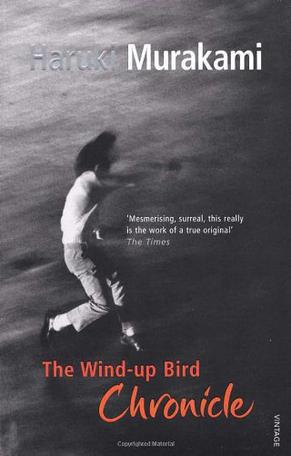
The Wind-Up Bird Chronicle
Toru Okada's cat has disappeared and this has unsettled his wife, who is herself growing more distant every day. Then there are the increasingly explicit telephone calls he has started receiving. As this compelling story unfolds, the tidy suburban realities of Okada's vague and blameless life, spent cooking, reading, listening to jazz and opera and drinking beer at the kitchen table, are turned inside out, and he embarks on a bizarre journey, guided (however obscurely) by a succession of characters, each with a tale to tell. (20021018) -

Birthday Stories
Birthday Stories, edited by Haruki Murakami, is a slight dose of morphine for those who are waiting for the English translation of his latest novel, Kafka on Shore. This "timeless anthology" of short stories brings the readers to see birthdays at different angles. There are sober birthdays, and also sweet ones. Stories are selected to provide a wide range of writing styles, from contemporary writer Andrea Lee and Ethan Canin to the famous Raymond Craver, Paul Theroux and Murakami himself. Personally, my favourite picks in the book include: "The Moor" by Russell Banks (a man meeting a woman accidentally on her birthday thirty years later and a love affair involving an age difference of decades is revisited); "Timothy's Birthday" (about how Timothy draws away from his parents after his homoosexual partner died in the previous year); "The Birthday Cake" by Daniel Lyons (a mother who insists on not giving away a cake for their children who are not coming home for celebration); "The Bath" by Raymond Craver (the parental worries on concern on the car accdient of their beloved birthday son; the ending is particularly thought-provoking) and "Close to the Water's Edge" by Claire Keegan (an eminent Harvard student failing to change his lifestyle on his birthday). The first book I picked up by Ethan Canin was his collection of short stories called The Palace Thief. His writing style already haunted me at that time. What amazes me more in his "Angel of Mercy, Angel of Wrath" is his fast-paced plot and the delicate treatment of the psychology of a paranoid and ignored birthday mother. The dialogues are simple but powerful, short by revealing. Let's talk about the dose of Murakami morphine. His story "Birthday Girl" is simple and consise to bring out the message that no matter what we wish on our birthdays, we are still what we are. Wishes for a change in fact do not, or cannot, change anything at all". This is similar to the everything-happens-for-a-reason theory in Wild Sheel Chase. The birthday girl in the story does not tell the narrator what she wished on her 20th birthday. Does it matter? Her life still goes on like normal.(Remind me of the ending shot in Lost in Translation!) This anthology is a fast-read. All the stories in the anthology are very solid, nothing pretentious. It is definitely one of the books you may pick out if you have no dates on the forthcoming birthday - a great birthday companion. What should be mentioned here is the poem (or lyrics?) written by Paul Simon at the beginning of the anthology - "Have a good time". How many of us really had a good time on our past birthdays? Or how many of us expected so? Will we have a (un)happy birthday next year? We don't know. But the characters in the stories tell us that they have something to grasp on theirs - the readers. -
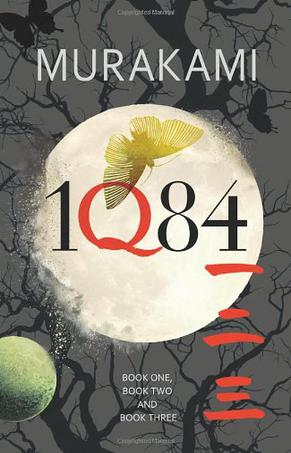
1Q84 Books 1, 2 & 3
"Murakami is like a magician who explains what he's doing as he performs the trick and still makes you believe he has supernatural powers . . . But while anyone can tell a story that resembles a dream, it's the rare artist, like this one, who can make us feel that we are dreaming it ourselves." --"The New York Times Book Review" " " The year is 1984 and the city is Tokyo. A young woman named Aomame follows a taxi driver's enigmatic suggestion and begins to notice puzzling discrepancies in the world around her. She has entered, she realizes, a parallel existence, which she calls 1Q84 --"Q is for 'question mark.' A world that bears a question." Meanwhile, an aspiring writer named Tengo takes on a suspect ghostwriting project. He becomes so wrapped up with the work and its unusual author that, soon, his previously placid life begins to come unraveled. As Aomame's and Tengo's narratives converge over the course of this single year, we learn of the profound and tangled connections that bind them ever closer: a beautiful, dyslexic teenage girl with a unique vision; a mysterious religious cult that instigated a shoot-out with the metropolitan police; a reclusive, wealthy dowager who runs a shelter for abused women; a hideously ugly private investigator; a mild-mannered yet ruthlessly efficient bodyguard; and a peculiarly insistent television-fee collector. A love story, a mystery, a fantasy, a novel of self-discovery, a dystopia to rival George Orwell's--"1Q84" is Haruki Murakami's most ambitious undertaking yet: an instant best seller in his native Japan, and a tremendous feat of imagination from one of our most revered contemporary writers. -
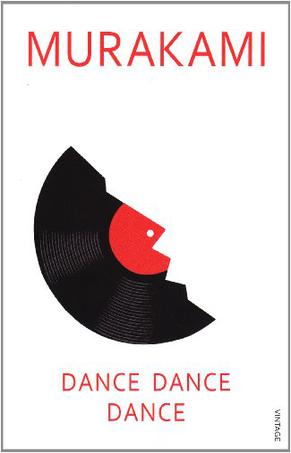
Dance Dance Dance
High-class call girls billed to Mastercard. A psychic 13-year-old dropout with a passion for Talking Heads. A hunky matinee idol doomed to play dentists and teachers. A one-armed beach-combing poet, an uptight hotel clerk and one very bemused narrator caught in the web of advanced capitalist mayhem. Combine this offbeat cast of characters with Murakami's idiosyncratic prose and out comes Dance Dance Dance. It is an assault on the sense, part murder mystery, part metaphysical speculation; a fable for our times as catchy as a rock song blasting from the window of a sports car. (20021018) -
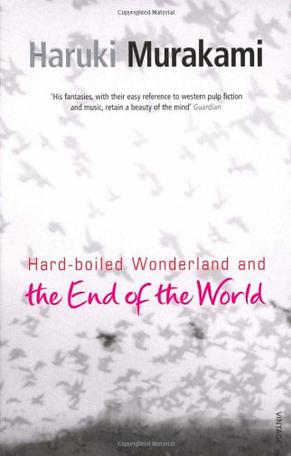
Hard-Boiled Wonderland and the End of the World
A narrative particle accelerator that zooms between Wild Turkey Whiskey and Bob Dylan, unicorn skulls and voracious librarians, John Coltrane and Lord Jim. Science fiction, detective story and post-modern manifesto all rolled into one rip-roaring novel, Hard-boiled Wonderland and the End of the World is the tour de force that expanded Haruki Murakami's international following. Tracking one man's descent into the Kafkaesque underworld of contemporary Tokyo, Murakami unites East and West, tragedy and farce, compassion and detachment, slang and philosophy. The result is a wildly inventive fantasy and a meditation on the many uses of the mind. (20021018) -
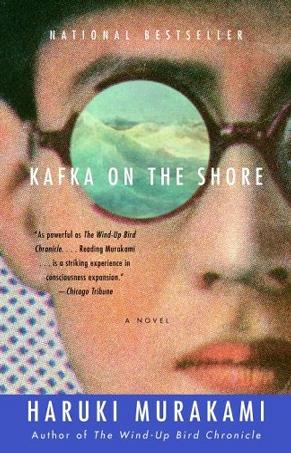
Kafka on the Shore
Kafka on the Shore is powered by two remarkable characters: a teenage boy, Kafka Tamura, who runs away from home either to escape a gruesome oedipal prophecy or to search for his long-missing mother and sister; and an aging simpleton called Nakata, who never recovered from a wartime affliction and now is drawn toward Kafka for reasons that, like the most basic activities of daily life, he cannot fathom. As their paths converge, and the reasons for that convergence become clear, Haruki Murakami enfolds readers in a world where cats talk, fish fall from the sky, and spirits slip out of their bodies to make love or commit murder. Kafka on the Shore displays one of the world’s great storytellers at the peak of his powers.